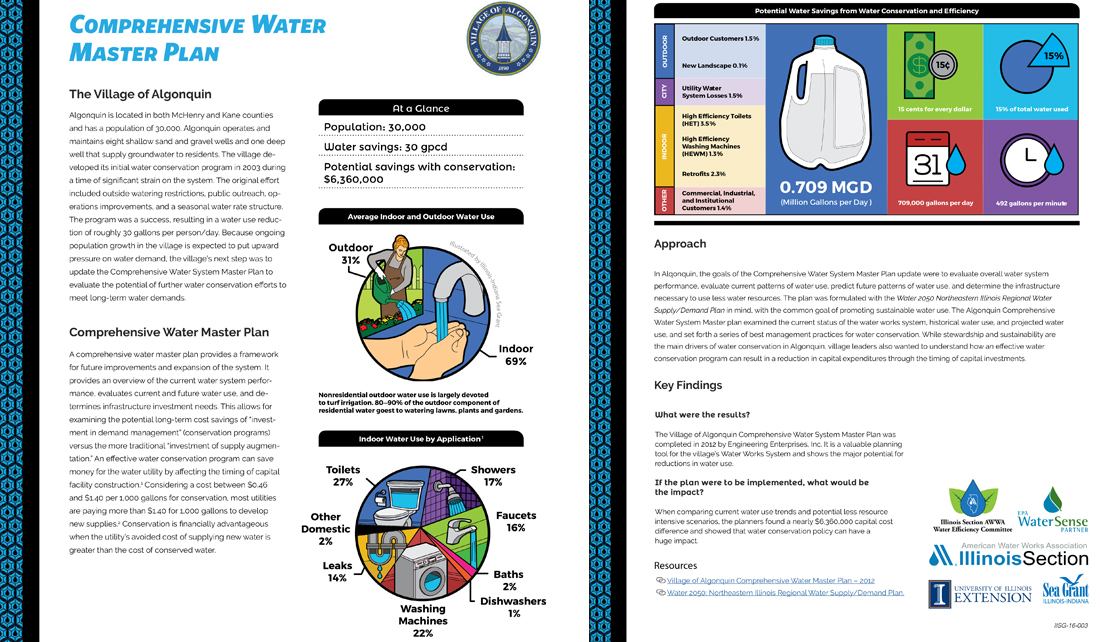
Municipalities throughout Illinois have been making determined efforts to conserve water though policy changes, education, outreach, and water-loss reduction strategies. The Illinois Section of the American Water Works Association (ISAWWA) Water Efficiency Committee and IISG assembled seven case studies from the ISAWWA Water Saver award applications to highlight water efficiency achievements.
Algonquin is the third story in our series.
Rapid population growth is forcing Algonquin, Illinois, a city of about 30,000 located 40 miles northwest of Chicago, to reevaluate its water use strategy.
The village developed its initial water conservation program in 2003 at a time when the system was significantly strained. It included outside watering restrictions, public outreach, operations improvements, and a seasonal water rate structure. The program was a success, resulting in a water use reduction of roughly 30 gallons per person/day.
Because ongoing population growth in the village is expected to put upward pressure on water demand, Algonquin’s next step was to update the Comprehensive Water System Master Plan to evaluate the potential of further water conservation efforts to meet long-term water demands. The goals were to evaluate overall water system performance, evaluate current patterns of water use, predict future patterns of water use, and determine the infrastructure necessary to use less water resources.
While stewardship and sustainability are the main drivers of water conservation in Algonquin, village leaders also wanted to understand how an effective water conservation program can result in a reduction in capital expenditures through the timing of capital investments.
The Village of Algonquin Comprehensive Water System Master Plan was completed in 2012 by Engineering Enterprises, Inc. As the plan moves forward, the savings will be significant.
When comparing current water use trends and potential less resource intensive scenarios, the planners found a nearly $6,360,000 capital cost difference and showed that water conservation policy can have a huge impact.
“The Master Plan has been a great resource to refer back to,” said Andy Warmus, Algonquin utilities superintendent.
“I use the document in some fashion every day. Can’t imagine not having the information at our fingertips.”

